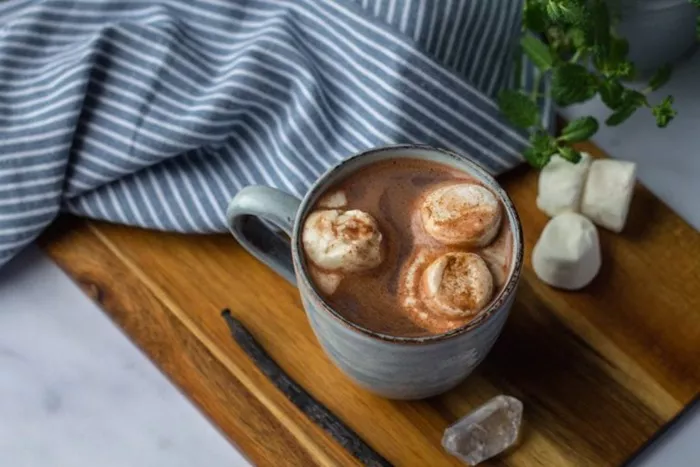Cocoa is a popular ingredient that has been enjoyed by many in various forms—hot cocoa, chocolate, and even in baked goods. While it is often consumed as a comforting treat, some people wonder if cocoa has any impact on sleep. The question, “Does cocoa make you sleep?” is not as straightforward as it seems. In this article, we will explore how cocoa affects sleep, the role of its ingredients, and whether drinking cocoa before bedtime is beneficial or problematic for sleep quality.
The Composition of Cocoa
Before diving into how cocoa affects sleep, it’s important to understand what cocoa is made of. Cocoa is derived from cacao beans and contains a variety of compounds that can influence the body in different ways. These include:
Caffeine: Cocoa contains a small amount of caffeine, a stimulant known for its ability to promote alertness.
Theobromine: A compound similar to caffeine, theobromine also has stimulating effects but is milder.
Magnesium: This mineral is often praised for its relaxing properties and may help promote better sleep.
Flavonoids: Cocoa is rich in flavonoids, antioxidants that can support cardiovascular health and may have calming effects.
Sugar: Many cocoa products, especially chocolate, are sweetened with sugar, which can have a stimulating effect on the body.
These compounds play different roles in how cocoa can impact sleep. Now, let’s explore the effects of cocoa on sleep in more detail.
The Role of Caffeine in Cocoa
Caffeine is the most well-known compound associated with alertness and wakefulness. It is a central nervous system stimulant that can make it harder for some people to fall asleep, especially if consumed in large quantities or too close to bedtime.
While cocoa does contain caffeine, it has much less than coffee or tea. A typical serving of hot cocoa (about 8 ounces) contains around 3 milligrams of caffeine, compared to 95 milligrams in an 8-ounce cup of coffee. This means that cocoa will not have the same stimulating effect as a cup of coffee, but it still has the potential to influence sleep, particularly for those who are highly sensitive to caffeine.
If you are someone who has trouble falling asleep after consuming caffeine, it’s a good idea to monitor your cocoa intake before bed. A small cup of cocoa in the evening may not keep you awake, but if you are highly sensitive to caffeine, it’s better to avoid it in the hours leading up to bedtime.
The Effects of Theobromine
Theobromine is another stimulant found in cocoa, and it’s chemically related to caffeine. However, its effects on the body are generally milder than caffeine. Theobromine is known to increase heart rate and stimulate the nervous system, but it doesn’t have the same powerful wakefulness-promoting effects as caffeine.
While theobromine can have a stimulating effect, it is unlikely to disrupt sleep significantly, especially when consumed in moderate amounts. Theobromine’s impact on sleep will vary from person to person. Some individuals may find that they are sensitive to theobromine and feel more awake after consuming cocoa, while others may not experience any noticeable effects. In general, cocoa contains more theobromine than caffeine, but it is still much less potent than other sources of stimulants.
The Role of Magnesium in Sleep
Magnesium is a mineral that plays a vital role in sleep regulation. It has a calming effect on the body and can help promote muscle relaxation, making it easier to wind down and fall asleep. Magnesium is also involved in the production of the sleep hormone melatonin.
Cocoa is a good source of magnesium, with about 64 milligrams of magnesium per ounce of dark chocolate. For those who have trouble sleeping, magnesium can be helpful in promoting relaxation. Some people find that consuming foods rich in magnesium, such as cocoa, can aid in falling asleep faster and improving sleep quality.
If you are looking for a natural way to relax before bed, drinking a warm cup of cocoa with a high magnesium content, such as dark chocolate cocoa, could help promote relaxation. However, it’s important to note that the effect may be mild, and cocoa should not be relied upon as the sole solution for sleep problems.
Sugar in Cocoa and Its Impact on Sleep
Many people enjoy cocoa in the form of hot chocolate, which is typically sweetened with sugar. Sugar can have a complex effect on the body, particularly when consumed before bed.
In the short term, sugar can cause a spike in blood glucose levels, followed by a rapid drop. This drop in blood sugar may lead to feelings of fatigue, but it can also disrupt sleep patterns. Additionally, consuming sugar close to bedtime can cause an energy burst, making it more difficult to relax and fall asleep.
If you are trying to improve your sleep, it’s best to avoid sugary cocoa drinks before bed. Instead, consider making a version with little or no added sugar, or use natural sweeteners like stevia or honey. This will help you enjoy the benefits of cocoa without the negative effects of sugar on your sleep.
The Calming Effects of Cocoa’s Flavonoids
Cocoa is rich in flavonoids, which are plant-based compounds with antioxidant properties. These flavonoids can help reduce inflammation and improve blood flow, and they are also believed to have calming effects on the nervous system.
Some studies suggest that consuming flavonoid-rich foods like cocoa may help reduce stress and anxiety, which are common barriers to restful sleep. The calming effects of flavonoids can help promote a sense of relaxation, making it easier to wind down before bed.
While the effects of flavonoids on sleep may not be as immediate as those of magnesium or melatonin, they can contribute to better overall sleep quality over time. Dark chocolate, which contains higher levels of flavonoids than milk chocolate, may offer the most benefits in terms of relaxation and sleep support.
Can Cocoa Make You Sleep?
Cocoa can have both positive and negative effects on sleep, depending on the individual and the context in which it is consumed. On the one hand, cocoa contains compounds like magnesium and flavonoids that can promote relaxation and potentially support better sleep. On the other hand, the caffeine and theobromine content in cocoa can have mild stimulating effects, especially for sensitive individuals.
If you are looking to enjoy cocoa before bed, consider choosing a version with minimal added sugar and possibly opting for dark cocoa or chocolate, which has a higher concentration of magnesium and flavonoids. Avoiding sugary, highly caffeinated drinks and limiting consumption to moderate amounts will help minimize any negative impact on sleep.
When Should You Drink Cocoa for Better Sleep?
To maximize the relaxing benefits of cocoa and avoid the potential stimulating effects of caffeine and theobromine, consider drinking cocoa at least 3 to 4 hours before bed. This will give your body time to process the caffeine and theobromine, allowing the calming effects of magnesium and flavonoids to take center stage.
For those who are sensitive to caffeine, it’s advisable to avoid cocoa in the late evening or right before bed. However, for most people, a small serving of cocoa can be a soothing way to wind down and prepare for sleep.
Conclusion
In summary, cocoa can have both positive and negative effects on sleep. While it contains caffeine and theobromine, which can have mild stimulating effects, it also contains magnesium and flavonoids, which promote relaxation and could improve sleep quality. For most people, drinking cocoa in moderation, especially in the form of dark chocolate or unsweetened cocoa, may offer some benefits for sleep without disrupting rest. However, if you are sensitive to caffeine or have trouble sleeping, it’s best to enjoy cocoa earlier in the day or avoid it in the evening altogether.
Related topics:



























